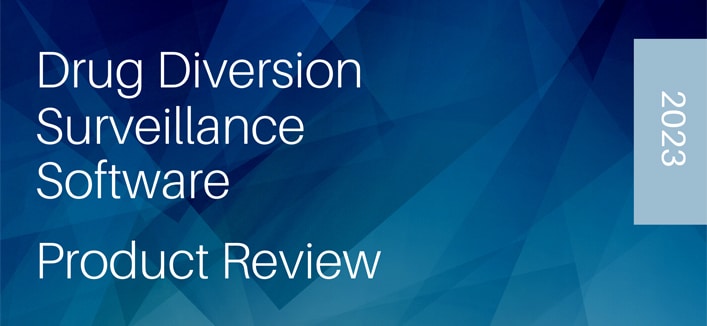Controlled substances (CS) play an essential role in the management of severe pain and addiction treatment. However, these medications pose a high risk of diversion, which can result in serious consequences for patients, healthcare professionals, and healthcare facilities. One effective way to prevent CS diversion is the proper waste witnessing of partial vials. However, properly executed witnessing can be tough to achieve, and hospitals may face challenges when ensuring this process. In this blog post, we’ll discuss the importance of diligent waste witnessing in mitigating drug diversion and the measures healthcare facilities can take to implement these practices successfully.
Improper Waste of Medications
One of the most prevalent methods of drug diversion is the improper waste of medications. This is because partial vials can create an easy opportunity for the diversion of CS. It is also easy for the person with a substance use disorder to rationalize that they are just taking something that is going in the trash. It is not really stealing, after all. In order to mitigate waste through diversion, when waste needs to be performed the witness must be present to oversee the discard of the remaining contents into the waste bin. One of the comments often heard from nursing staff is that even if they did witness waste as they should, how can they be sure what is being wasted? This is a good question, how can they be sure when a colleague has had the vial/syringe in their possession for the last 30-60 minutes and therefore had ample time to tamper with the contents? It may be saline that is being wasted and yet the witness who is observing the actual discard is signing off on the waste of a CS. This is why CS waste performed at the time of initial medication removal is the ideal method. It assures that the witness is present at the initial access into the vial/syringe. Unfortunately, too often this process is not being done as it should. Even if waste is technically documented at the time of medication removal, the witness signs into the automated dispensing machine to indicate they are wasting, the physical waste with the witness is not actually performed, leaving the primary nurse to waste later. This later waste is often without being witnessed or after the primary nurse has had time to tamper with the contents.
Reasons for Unwitnessed Wasting in Healthcare Facilities
Part of the reason proper wasting falls through the cracks is that nursing staff is often overwhelmed and under-resourced. They are constantly multitasking and performing many different duties at once, often with limited resources. It’s easy for a task like witnessing CS waste to fall by the wayside, especially if there is no system in place to ensure that it is being done consistently. Without proper witnessing, the risk of waste and diversion is significantly increased.
Another reason proper wasting may not be done is that staff don’t recognize the importance. With an understanding of why this process is so critical and the role that staff plays in mitigating diversion, they can do their part more effectively. Proper waste witnessing educates nurses on the value of correct medication disposal to prevent the diversion of controlled substances.
Ensuring Proper Waste Witnessing Practices
Hospitals should continuously evaluate their waste witnessing systems regularly. Facilities can conduct an audit to reassure proper compliance and determine where there may be gaps in their current practices. Audits can be formal utilizing a drug diversion consultant or included in medication pass observations and regulatory readiness surveys. However, informal methods such as candid observation while on the unit may be more valuable. Engage unit managers, compliance, and pharmacists to observe throughout their day while on the units. Perform real-time education when a failure to witness according to policy occurs.
The diversion of controlled substances is a serious problem that requires a multifaceted approach to solve. One key part of this solution is ensuring that CS waste is properly witnessed. By doing so, hospitals can reduce the risk of diversion and ensure that these powerful drugs are being used appropriately. While the process of witnessing CS waste can sometimes fall through the cracks, there are steps that hospitals can take to improve it. Educating staff, and providing resources can all play a role in mitigating diversion and improving medication management. By taking an active approach to this problem, healthcare leaders can help to protect their patients and meet their ethical and legal responsibilities.








